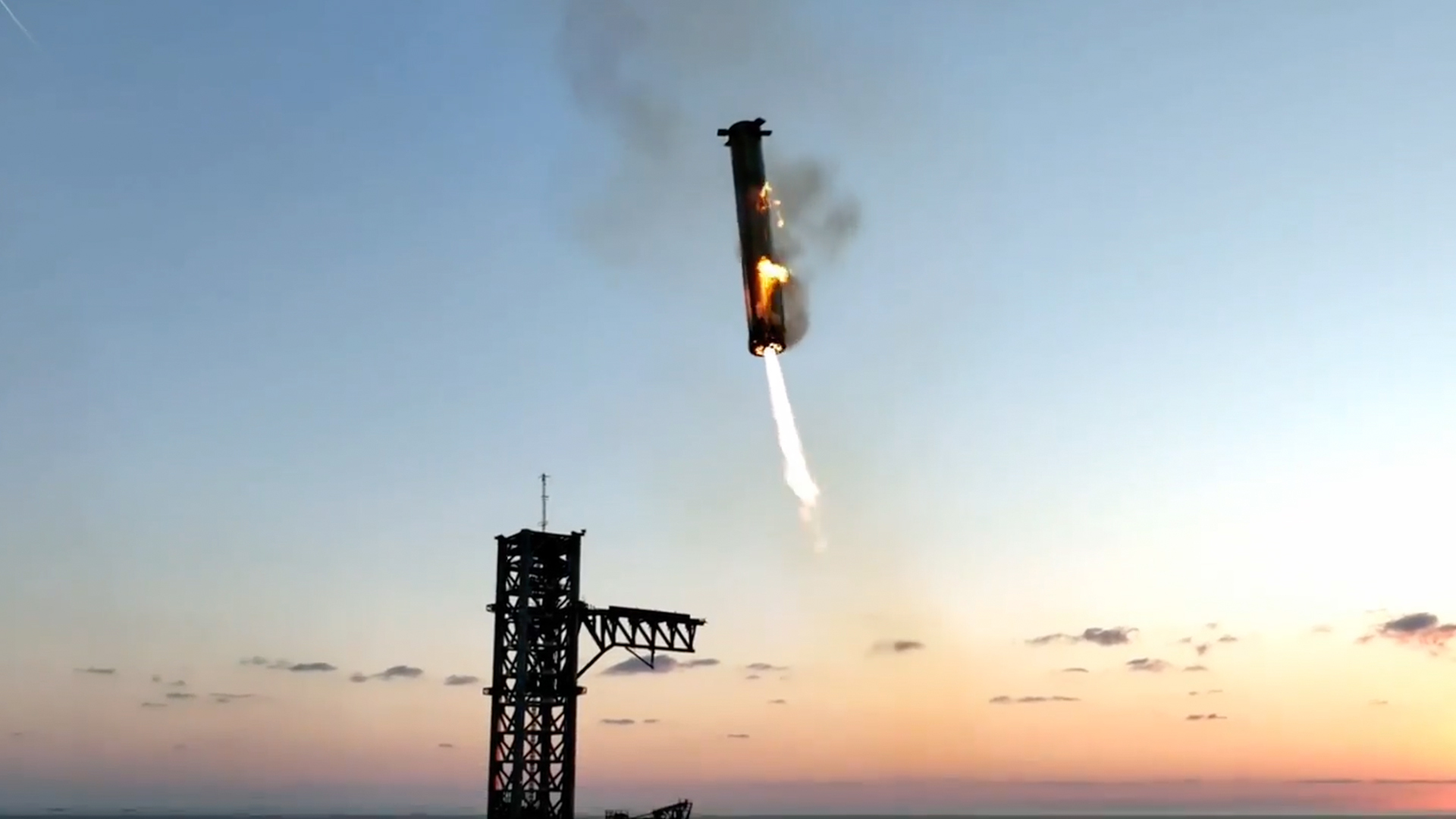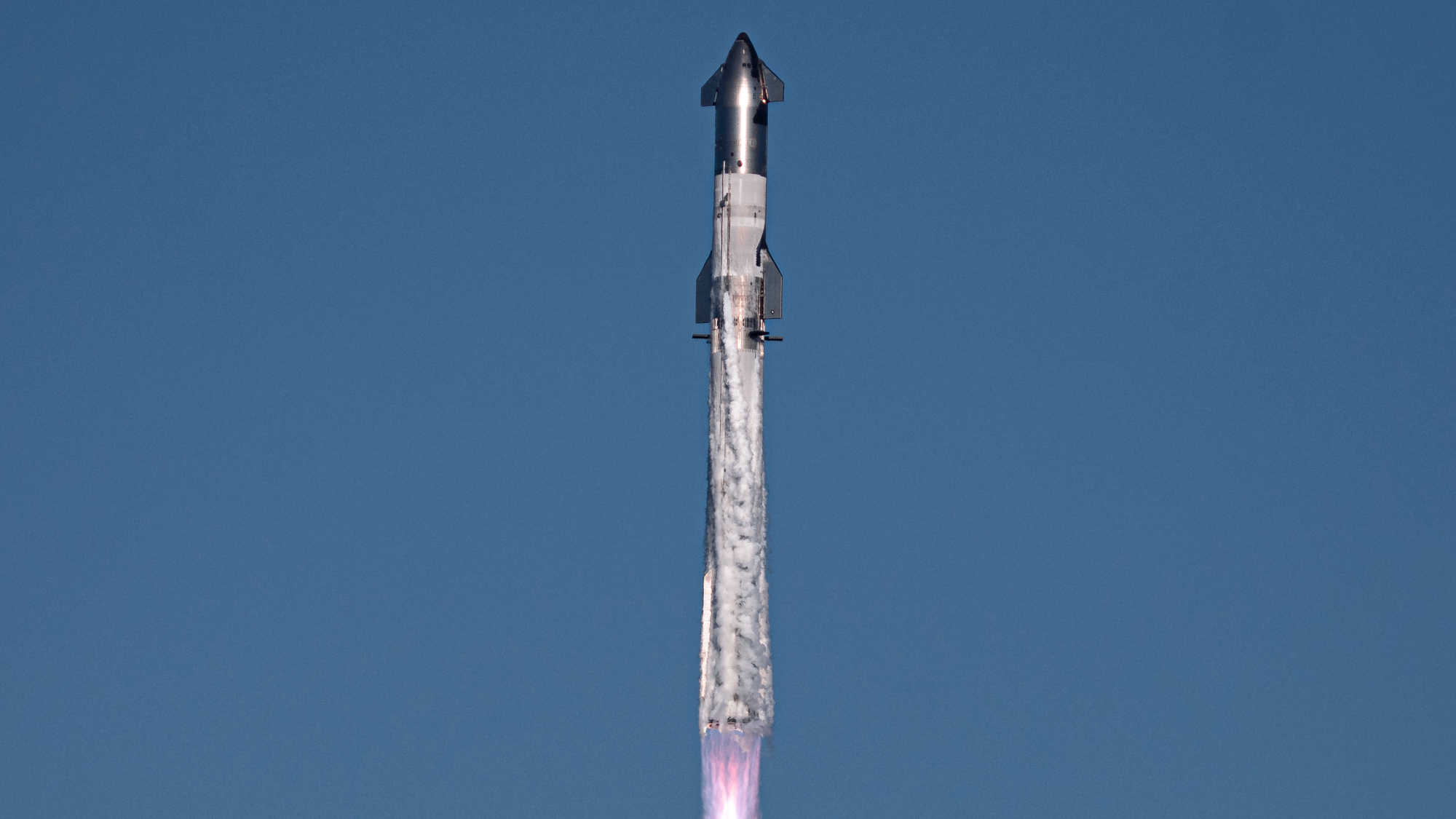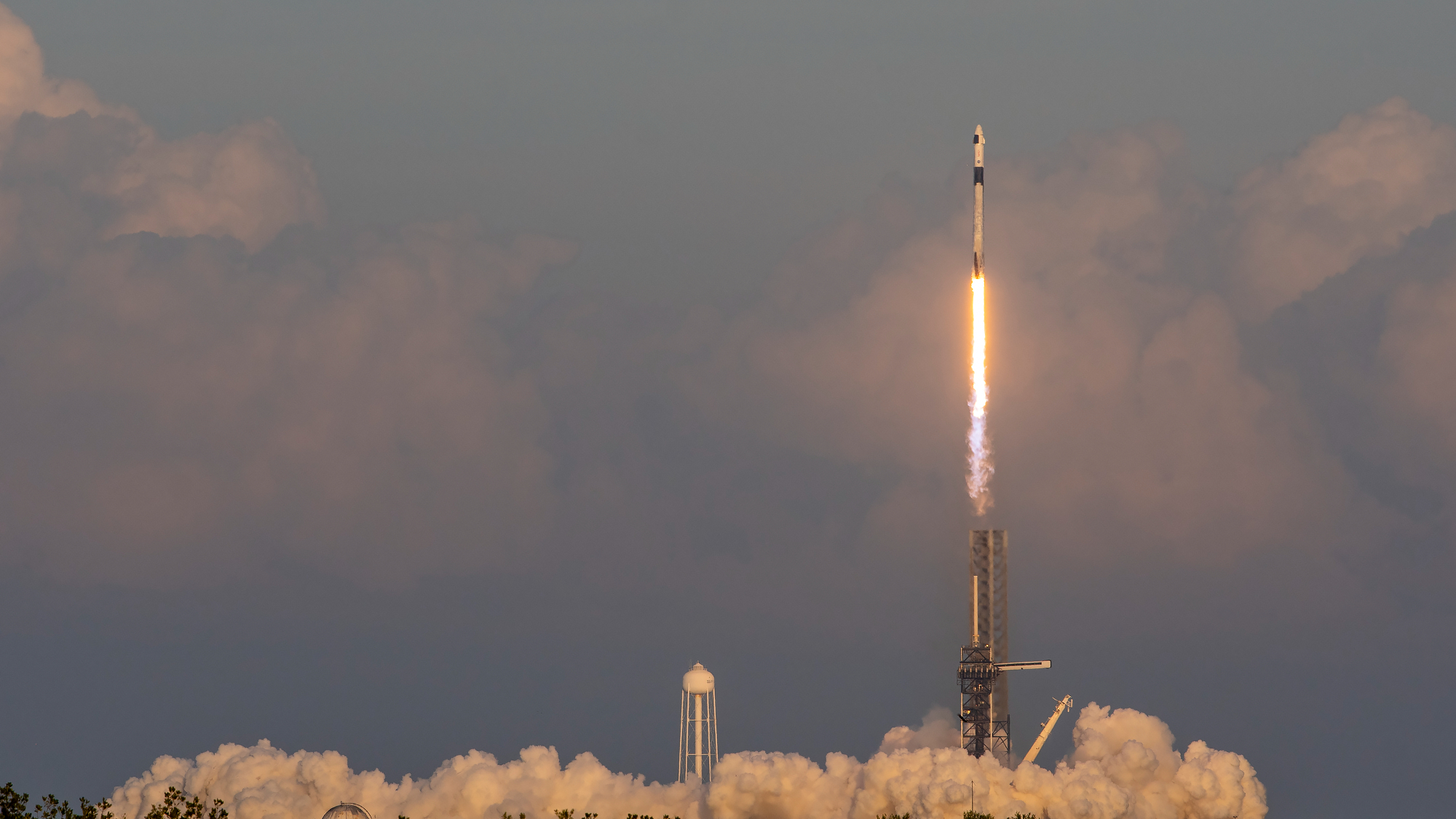
SpaceX had a pretty good 2024.
Elon Musk's company broke its own record for most launches in a single year, continued pushing the boundaries of rocket reuse and made serious strides toward getting Starship, its next-generation megarocket, up and running.
Oh, and Musk has apparently entered the inner circle of President-elect Donald Trump, wielding political power like he never has before. Here's a brief rundown of SpaceX's very busy year.
Shattering launch records and Starship flights
SpaceX launched 98 orbital missions in 2023, a new record for the company at the time — but it left that mark in the dust this year. The company's orbital tally in 2024, as of Dec. 23, is 131 — more than half the global total for the year.
Related: 8 ways that SpaceX has transformed spaceflight
The vast majority of the SpaceX liftoffs this year — 128 of them — were performed by its workhorse Falcon 9, with the powerful Falcon Heavy responsible for the other two.
And Starship launched four times as well, on suborbital test flights that lifted off in March, June, October and November of this year. The vehicle made serious progress on these trial launches. On the most recent three, for instance, both Starship elements — the Super Heavy first-stage booster and Ship upper stage — survived reentry to Earth's atmosphere and made it all the way to the planet's surface.
Get the Space.com Newsletter
Breaking space news, the latest updates on rocket launches, skywatching events and more!
And on Flight 5, which lifted off on Oct. 13, Super Heavy came back safely to its launch tower, which grabbed the booster with its "chopstick" arms in a move that seemed like a scene from science fiction.

This is the Starship plan over the long haul, by the way: SpaceX wants to catch both Super Heavy and Ship back at the launch tower, a strategy that will make inspection and reflight of the megarocket quicker and more efficient.
The Starship progress this year is important, because SpaceX and NASA have a relatively tight timeline for the rocket: It's the crewed lander for the agency's Artemis 3 moon mission, which is currently scheduled to lift off in mid-2027.
And SpaceX has big plans for the megarocket beyond that effort. The company sees Starship's combination of power and full reusability as the breakthrough that will make the settlement of Mars — a long-held dream of Musk's — economically viable.
Speaking of reuse, SpaceX set a new Falcon 9 record this year: On Dec. 4, the company launched a mission that marked the 24th flight for that particular rocket's first stage. (The Falcon 9 is not fully reusable; its upper stage is expendable.) That won't be the end of it, however; if history is any guide, SpaceX will likely keep pushing that record forward, to 25 flights and beyond.
A big Starlink milestone
Four of this year's Falcon 9 missions sent astronauts to orbit — including Polaris Dawn in September, which went farther from Earth than any crewed flight since the Apollo era and conducted the first-ever private spacewalk.
But most of the 2024 Falcon 9 launches — nearly 70% of them — were devoted to building out Starlink, SpaceX's broadband constellation in low Earth orbit, which currently consists of more than 6,800 satellites.
A small subset of this total — about 350 spacecraft — are capable of beaming service directly to smartphones. But that number is significant, as Musk noted shortly after a key Dec. 4 Starlink launch (not the same one that set the Falcon 9 reflight record).
"The first Starlink satellite direct-to-cell phone constellation is now complete," the billionaire entrepreneur said via X, the social media platform that he owns, on Dec. 5. "This will enable unmodified cellphones to have internet connectivity in remote areas. Bandwidth per beam is only ~10Mb, but future constellations will be much more capable."
Elon Musk and Trump get close
Musk was a big backer of President-elect Donald Trump during this election cycle, ultimately spending about $250 million — and a great deal of time on X — to aid Trump's successful presidential run.
The two are apparently now quite close, and Trump has tapped Musk to co-lead a new advisory committee tasked with helping slash regulations and cut government spending.
This new relationship may not fundamentally change anything. SpaceX was already a powerful and important player in government circles, after all; it's the top U.S. launch provider and routinely lofts key national-security satellites.
But having greater access to the halls of power certainly won't hurt Musk's various companies, SpaceX included; the situation poses conflict-of-interest concerns, as a number of people have pointed out. And it's another part of SpaceX's very eventful, and very accomplished, 2024.
Join our Space Forums to keep talking space on the latest missions, night sky and more! And if you have a news tip, correction or comment, let us know at: community@space.com.

Michael Wall is a Senior Space Writer with Space.com and joined the team in 2010. He primarily covers exoplanets, spaceflight and military space, but has been known to dabble in the space art beat. His book about the search for alien life, "Out There," was published on Nov. 13, 2018. Before becoming a science writer, Michael worked as a herpetologist and wildlife biologist. He has a Ph.D. in evolutionary biology from the University of Sydney, Australia, a bachelor's degree from the University of Arizona, and a graduate certificate in science writing from the University of California, Santa Cruz. To find out what his latest project is, you can follow Michael on Twitter.
-
NHEngineer With reference to your article 'SpaceX's big year: The new records and feats Elon Musk's space company achieved in 2024', what's with the "Oh, and Musk has apparently entered the inner circle of President-elect Donald Trump, wielding political power like he never has before." comment?Reply
How about you keep your articles purely scientific without including your obvious political animosities ? -
Torbjorn Larsson Reply
Journalists informing on the context is a well regarded service to the reader, "your obvious political animosities" aside. (And globally we could need less polarization, so getting emotional should be carefully considered.)NHEngineer said:How about you keep your articles purely scientific without including your obvious political animosities ? -
Torbjorn Larsson After having read today's news I have considered - today polarization is not the worst thing that is happening.Reply
Musk, who has a history of supporting right-wing populists such as the US convicted criminal Trump who aided an attempt of state coup and the UK Farage who instigated racist revolts has now claimed that the German AfD party - which is classified by the German judiciary as "suspected extremist" - is not right-wing extremist.
The EU-skeptic AfD is implicit in supporting, arguably, the WWWIII with North Korean troops warring on European soil that Putin started. Currently Finland is holding what appears to be one of two spy ships in the Russian shadow fleet after it cut power and data cables between Finland and Estland, both Ukraine supporters. It's not the first cable or gas pipe cuts in the Baltic Sea either. The whole of Europe is involved in at least a hybrid war with the "Axis of Evil" - Russia, China and Iran weapon or tropp suppliers (and now North Korea, since Russia can't keep up) - but with large combat zones as well. And the only interest Musk shows for the Germany he has car plants in is to portrait a party that is threatening Europa as that it 'can save it'. -
NHEngineer That is a meaningless word salad only intended to confuse the issue. You may want to consider spending less time with Kamala HarrisReply









